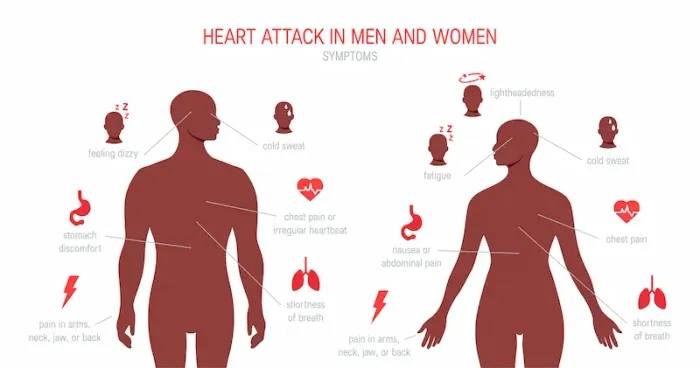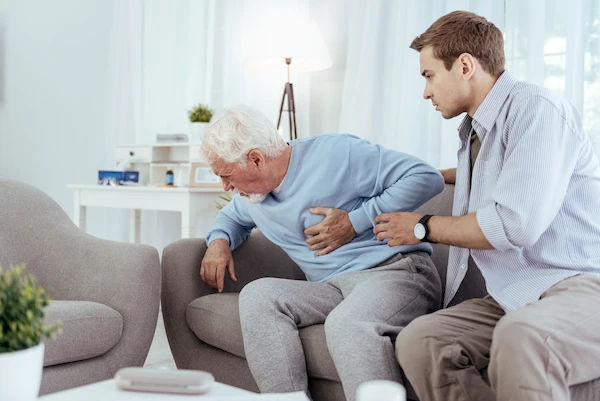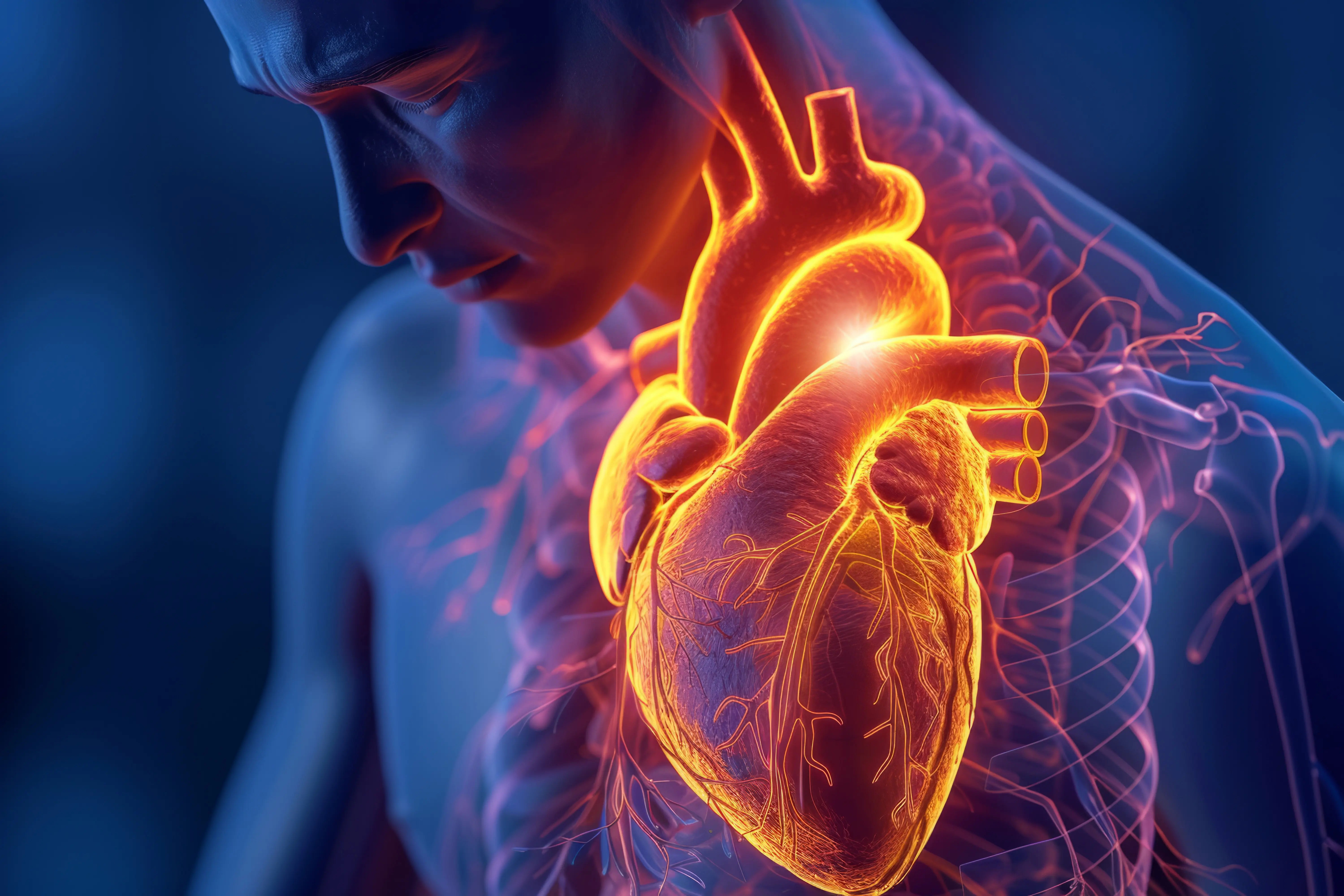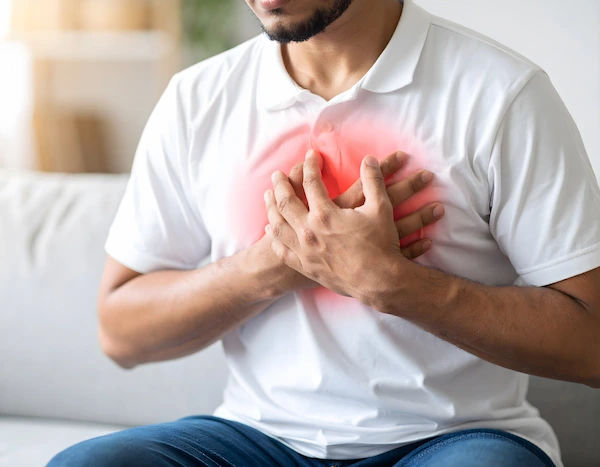Signs of a Heart Attack in Men and Women: Clearing the Confusion
Understand the real signs of a heart attack in men and women. Learn how symptoms differ, what to watch for, and when to seek emergency care.

Written by Dr. Mohammed Kamran
Reviewed by Dr. Rohinipriyanka Pondugula MBBS
Last updated on 13th Jan, 2026

Introduction
When you picture a heart attack, you likely see a man gasping, clutching his chest, and collapsing. While this dramatic scene happens, it’s far from the whole story. The reality of a heart attack is often more subtle, and the signs can be strikingly different between men and women. This confusion can lead to dangerous delays in seeking life-saving treatment. Understanding the full spectrum of symptoms is not just helpful—it’s critical. This article will cut through the confusion, clearly outlining the universal red flags, the nuanced differences in how heart attack symptoms present in men and women, and the immediate steps you must take. Our goal is to empower you with knowledge that goes beyond the Hollywood cliché, because recognising the true signs of a cardiac event can mean the difference between life and death.
The Universal Red Flags: Symptoms Everyone Should Know
Regardless of gender, a heart attack occurs when blood flow to a part of the heart is blocked, usually by a blood clot forming on a buildup of plaque (atherosclerosis) in the coronary arteries. The heart muscle, starved of oxygen, begins to die, sending distress signals throughout the body. While the presentation varies, several core symptoms are common across the board. Recognising these universal signs is the first step to taking swift action.
Chest Discomfort: The Most Common Sign
This is the hallmark symptom, but it’s rarely the sharp, stabbing pain often depicted. Most people describe it as an uncomfortable pressure, squeezing, fullness, or pain in the centre or left side of the chest. The sensation can be intense or surprisingly mild. A key characteristic is that it typically lasts for more than a few minutes, or it may go away and come back. It’s crucial to understand that you can have a heart attack without severe chest pain, especially for women and individuals with diabetes.
Radiating Pain: Beyond the Chest
The pain and discomfort don't always stay confined to the chest. It can spread, or "radiate," to other areas of the upper body. This includes one or both arms (with the left arm being more common), the back, the neck, the jaw, or even the stomach. This happens because the nerves serving the heart also serve these other areas, and the brain can sometimes misinterpret the source of the pain. This radiating pain is a critical sign that should never be ignored as a simple muscle ache.
Systemic Signs: Shortness of Breath, Sweating, and Dizziness
Alongside pain, the body often exhibits systemic reactions. Shortness of breath can occur with or without chest discomfort. It may feel like you can’t catch your breath, even while resting. Breaking out in a cold sweat, feeling clammy, or experiencing sudden, severe nausea and vomiting are also common. Lightheadedness or dizziness can occur as the heart struggles to pump blood effectively to the brain. These symptoms, particularly when combined, strongly indicate a cardiac event.
Consult a Cardiologist for the best advice
Clearing the Confusion: How Heart Attack Signs Can Differ
The notion of "classic" (male) and "atypical" (female) symptoms is outdated and can be harmful. It’s more accurate to say that while anyone can experience any symptom, certain patterns are more frequently observed in different groups. Understanding why these differences exist helps clear the confusion.
Why Symptoms Vary: A Matter of Biology, Not Gender
The differences are largely rooted in biology. Research suggests that women may be more prone to experiencing blockages not only in the main arteries but also in the smaller blood vessels that supply the heart—a condition called microvascular disease. This can cause a different type of pain or discomfort that is less focused and more diffuse. Furthermore, women often develop coronary artery disease at a later age than men, sometimes leading to other health conditions that can mask or confuse heart attack symptoms.
Common Symptom Patterns in Men
Men more frequently report the "textbook" symptoms. This often includes the prominent, crushing chest pressure or pain (often described as "an elephant sitting on my chest"). Pain radiating down the left arm is also a very common presentation. While men can certainly experience shortness of breath and nausea, the pain-centric symptoms are often the most pronounced. This is the pattern most people are familiar with, but it's vital to know it's not the only one.
Common Symptom Patterns in Women
Women are more likely to experience symptoms that are not centred on chest pain. Instead, they may report:
• Unusual Fatigue: A sudden, overwhelming fatigue that isn't explained by activity. This can occur days or even weeks before the actual event.
• Shortness of Breath: This is a very common primary symptom for women, even without chest pain.
• Nausea/Vomiting: Often mistaken for the flu or acid reflux.
• Pain in the Back, Jaw, or Neck: This can be sharp or a dull ache and is often mistaken for musculoskeletal pain.
• A sense of impending doom: A feeling that something is terribly wrong.
Because these signs are less dramatic, women and their families may downplay them, leading to dangerous treatment delays. If you experience a cluster of these symptoms, especially with exertion, seek immediate medical attention.
The "Silent" Heart Attack: No Drama, Just Danger
A silent heart attack is perhaps the most insidious type. It occurs with minimal, unrecognised, or completely absent symptoms. Many people only discover they've had one week or months later during a routine ECG. Symptoms, if any, are often mistaken for indigestion, the flu, or a strained muscle. You might feel unusually fatigued, have mild discomfort in your chest or throat, or simply feel "off." Diabetics are at a higher risk for silent heart attacks due to nerve damage (neuropathy) that can blunt pain sensations. The danger is that this event still causes damage to the heart muscle, increasing the risk of a second, more severe heart attack or heart failure. If you have risk factors and experience unexplained, persistent fatigue or discomfort, consulting a doctor for a check-up is essential. Apollo24|7 offers convenient home collection for tests like cholesterol panels and HbA1c, which can help assess your cardiac risk from the comfort of your home.
Don't Wait, Act Immediately: Your Action Plan
Time is muscle. Every minute a heart attack goes untreated, more heart tissue dies. Hesitation is the biggest enemy. If you or someone near you experiences symptoms that could be a heart attack, follow this plan without delay.
Step 1: Recognise the Signs (Even the Subtle Ones)
Trust your instincts. If something feels seriously wrong, especially if you have risk factors like high blood pressure or diabetes, do not talk yourself out of it. It is far better to be checked and have it be a false alarm than to ignore a life-threatening event. Remember the symptoms we've discussed: chest discomfort, radiating pain, shortness of breath, cold sweat, nausea.
Step 2: Call for Emergency Help Immediately
Dial your local emergency number (like 108 in India). Do not drive yourself to the hospital unless there is absolutely no other option. Paramedics can begin life-saving treatment the moment they arrive, and the hospital can prepare for your arrival, saving precious time.
Step 3: While Waiting for Help
Take these steps to protect yourself while waiting for help to arrive:
• Stay Calm: Sit or lie down in a comfortable position.
• Chew an Aspirin: If you are not allergic and it is readily available, chewing one adult-sized (325mg) aspirin can help thin your blood and reduce heart damage. Do not delay calling for help to look for aspirin.
• Loosen Tight Clothing: This can help you breathe easier.
• Inform Others: If you are with someone, tell them your symptoms and that you think it might be a heart attack.
Conclusion
Understanding the true signs of a heart attack in both men and women empowers you to be your own best advocate. The key takeaway is to dismiss the myth of a single, dramatic symptom. Listen to your body, and trust your instincts. If you experience a cluster of symptoms—whether it's the classic chest pressure or unexplained fatigue and jaw pain—it’s always better to seek medical attention right away. The few minutes it takes to seek help can save your life and prevent long-term heart damage. Proactive heart health, including managing blood pressure, cholesterol, and diabetes, is your strongest defence. If you have concerns about your cardiac risk factors or experience persistent symptoms, consult a doctor online with Apollo24|7 for a personalised evaluation and guidance. Knowledge, combined with swift action, is the ultimate prescription for heart health.
Consult a Cardiologist for the best advice
Consult a Cardiologist for the best advice
Dr. Praveen Jaiswal
Cardiologist
17 Years • MD(Medicine), DM(Cardiology)
Indore
Apollo Hospitals Vijay Nagar, Indore

Dr. Sumanjita Bora
Cardiologist
9 Years • MBBS, PGDCC
Bengaluru
Apollo Clinic, Sarjapur Road, Bengaluru

Dr. Anand Ravi
General Physician
2 Years • MBBS
Bengaluru
PRESTIGE SHANTHINIKETAN - SOCIETY CLINIC, Bengaluru

Dr. Deepesh Venkatraman
Cardiologist
10 Years • MBBS, MD (Gen Med), DM (Cardio), DNB (Cardio)
Chennai
Apollo Medical Centre Kotturpuram, Chennai

Dr. Bhethala Sharan Prakash
General Physician/ Internal Medicine Specialist
5 Years • MBBS MD
Bengaluru
PRESTIGE SHANTHINIKETAN - SOCIETY CLINIC, Bengaluru
Consult a Cardiologist for the best advice
Dr. Praveen Jaiswal
Cardiologist
17 Years • MD(Medicine), DM(Cardiology)
Indore
Apollo Hospitals Vijay Nagar, Indore

Dr. Sumanjita Bora
Cardiologist
9 Years • MBBS, PGDCC
Bengaluru
Apollo Clinic, Sarjapur Road, Bengaluru

Dr. Anand Ravi
General Physician
2 Years • MBBS
Bengaluru
PRESTIGE SHANTHINIKETAN - SOCIETY CLINIC, Bengaluru

Dr. Deepesh Venkatraman
Cardiologist
10 Years • MBBS, MD (Gen Med), DM (Cardio), DNB (Cardio)
Chennai
Apollo Medical Centre Kotturpuram, Chennai

Dr. Bhethala Sharan Prakash
General Physician/ Internal Medicine Specialist
5 Years • MBBS MD
Bengaluru
PRESTIGE SHANTHINIKETAN - SOCIETY CLINIC, Bengaluru
More articles from Heart Attack
Frequently Asked Questions
1. Can you have a heart attack and not know it?
Yes. This is known as a silent heart attack. Symptoms can be so mild or atypical (like indigestion or extreme fatigue) that they are mistaken for a less serious condition. It's often detected later during a routine medical exam.
2. What is the difference between a heart attack and cardiac arrest?
A heart attack is a circulation problem—a blockage in a coronary artery stops blood flow to the heart. Cardiac arrest is an electrical problem—the heart suddenly stops beating effectively. A heart attack can cause cardiac arrest, but they are not the same thing.
3. How can I tell the difference between a heart attack and severe heartburn?
It can be very difficult. Heartburn is usually a burning sensation that worsens after eating or when lying down. Heart attack pain is often a pressure or squeezing that may be triggered by exertion and accompanied by shortness of breath or sweating. When in doubt, seek immediate medical evaluation.
4. What are the early signs of a heart attack in females?
Women should be alert to unusual fatigue (often days in advance), shortness of breath without exertion, nausea or vomiting, and pain in the back, jaw, or neck. These can occur with or without chest pain.
5. What should I do if I live alone and think I'm having a heart attack?
Call emergency services immediately. Unlock your door so paramedics can enter. If you have aspirin readily available and are not allergic, chew one while you wait. Stay on the line with the dispatcher and follow their instructions.




